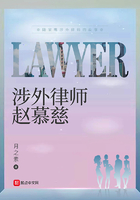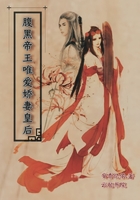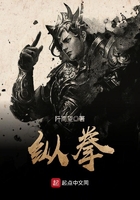When he rang the bell at the front entrance Nekhludoff's heart stood still with horror as he thought of the state he might find Maslova in to-day, and at the mystery that he felt to be in her and in the people that were collected in the prison. He asked the jailer who opened the door for Maslova. After ****** the necessary inquiry the jailer informed him that she was in the hospital. Nekhludoff went there. A kindly old man, the hospital doorkeeper, let him in at once and, after asking Nekhludoff whom he wanted, directed him to the children's ward. A young doctor saturated with carbolic acid met Nekhludoff in the passage and asked him severely what he wanted. This doctor was always ****** all sorts of concessions to the prisoners, and was therefore continually coming into conflict with the prison authorities and even with the head doctor. Fearing lest Nekhludoff should demand something unlawful, and wishing to show that he made no exceptions for any one, he pretended to be cross. "There are no women here; it is the children's ward," he said.
"Yes, I know; but a prisoner has been removed here to be an assistant nurse."
"Yes, there are two such here. Then whom do you want?"
"I am closely connected with one of them, named Maslova,"
Nekhludoff answered, "and should like to speak to her. I am going to Petersburg to hand in an appeal to the Senate about her case and should like to give her this. It is only a photo," Nekhludoff said, taking an envelope out of his pocket.
"All right, you may do that," said the doctor, relenting, and turning to an old woman with a white apron, he told her to call the prisoner--Nurse Maslova.
"Will you take a seat, or go into the waiting-room?
"Thanks," said Nekhludoff, and profiting by the favourable change in the manner of the doctor towards him asked how they were satisfied with Maslova in the hospital.
"Oh, she is all right. She works fairly well, if you the conditions of her former life into account. But here she is."
The old nurse came in at one of the doors, followed by Maslova, who wore a blue striped dress, a white apron, a kerchief that quite covered her hair. When she saw Nekhludoff her face flushed, and she stopped as if hesitating, then frowned, and with downcast eyes went quickly towards him along the strip of carpet in the middle of the passage. When she came up to Nekhludoff she did not wish to give him her hand, and then gave it, growing redder still. Nekhludoff had not seen her since the day when she begged forgiveness for having been in a passion, and he expected to find her the same as she was then. But to-day she quite different.
There was something new in the expression of her face, reserve and shyness, and, as it seemed to him, animosity towards him. He told her what he had already said to the doctor, i.e., that he was going to Petersburg, and he handed her the envelope with the photograph which he had brought from Panovo.
"I found this in Panovo--it's an old photo; perhaps you would like it. Take it."
Lifting her dark eyebrows, she looked at him with surprise in her squinting eyes, as if asking, "What is this for?" took the photo silently and put it in the bib of her apron "I saw your aunt there," said Nekhludoff.
"Did you?" she said, indifferently.
"Are you all right here?" Nekhludoff asked.
"Oh, yes, it's all right," she said.
"Not too difficult?"
"Oh, no. But I am not used to it yet."
"I am glad, for your sake. Anyhow, it is better than there."
"Than where--there?" she asked, her face flushing again.
"There--in the prison," Nekhludoff hurriedly answered.
"Why better?" she asked.
"I think the people are better. Here are none such as there must be there."
"There are many good ones there," she said.
"I have been seeing about the Menshoffs, and hope they will be liberated," said Nekhludoff.
"God grant they may. Such a splendid old woman," she said, again repeating her opinion of the old woman, and slightly smiling.
"I am going to Petersburg to-day. Your case will come on soon, and I hope the sentence will be repealed."
"Whether it is repealed or not won't matter now," she said.
"Why not now?"
"So," she said, looking with a quick, questioning glance into his eyes.
Nekhludoff understood the word and the look to mean that she wished to know whether he still kept firm to his decision or had accepted her refusal.
"I do not know why it does not matter to you," he said. "It certainly does not matter as far as I am concerned whether you are acquitted or not. I am ready to do what I told you in any case," he said decidedly.
She lifted her head and her black squinting eyes remained fixed on him and beyond him, and her face beamed with joy. But the words she spoke were very different from what her eyes said.
"You should not speak like that," she said.
"I am saying it so that you should know."
"Everything has been said about that, and there is no use speaking," she said, with difficulty repressing a smile.
A sudden noise came from the hospital ward, and the sound of a child crying.
"I think they are calling me," she said, and looked round uneasily.
"Well, good-bye, then," he said. She pretended not to see his extended hand, and, without taking it, turned away and hastily walked along the strip of carpet, trying to hide the triumph she felt.














